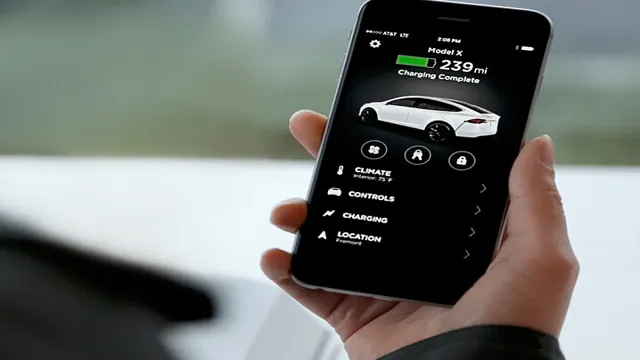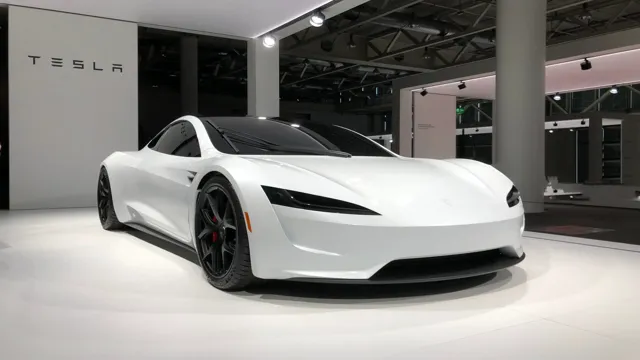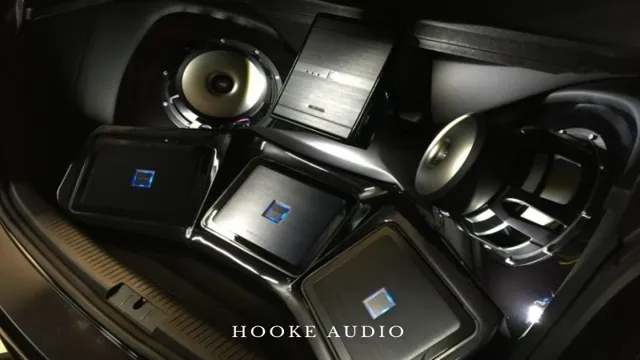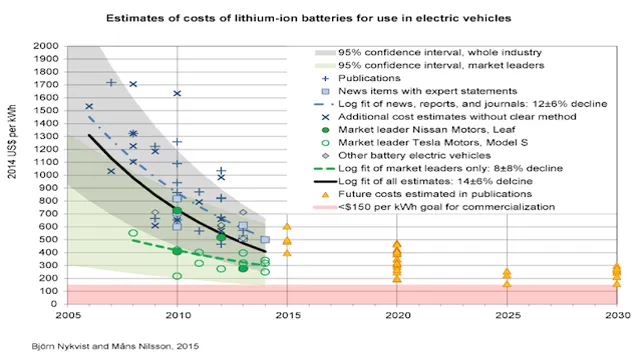Shocking Truth Revealed: Do Electric Cars Lose Battery When Parked?
Electric cars have become increasingly popular with the rising concern for the environment. With electric cars, you no longer have to worry about the harmful emissions or the high price of gasoline. But one question that often comes up is whether electric cars lose battery when parked.
Many people are curious to know if their car will lose power even when it’s not being driven. The reality is that yes, electric cars do lose battery when parked. Just like any other battery-operated device, the battery in an electric car will slowly discharge even when it’s not being used.
However, the rate at which it discharges is relatively slow and varies depending on various factors such as the temperature, the age of the battery, and the level of charge left. Some electric car manufacturers offer built-in technologies to help prevent battery loss, such as a sleep mode that puts the car into a lower power state when it’s parked. This mode helps reduce the drain on the battery, but it’s important to remember that it’s still not a complete solution.
In general, it’s recommended that electric car owners charge their cars more frequently to avoid significant battery loss. Properly maintaining the battery by keeping it within the recommended charge range and avoiding extremes in temperature also helps prolong the battery life. So, if you own an electric car, it’s essential to understand how to maintain and care for its battery.
With proper care, you can minimize the battery loss when your car is parked and ensure that it continues to perform efficiently and effectively.
Introduction
Are electric cars going to lose their battery when parked? It’s a common question among electric car owners, and the answer is not as straightforward as a simple yes or no. When an electric car is parked, its battery will still experience some level of energy loss, just like any other battery-powered device that’s not in use. However, the amount of discharge depends on a variety of factors, such as the car’s age, model, battery size, and the parking conditions.
In general, newer electric vehicles have advanced battery management systems that minimize energy loss during long periods of inactivity. Additionally, if you park your electric car in a warm and dry environment, the battery will lose less energy than if it’s left in a cold and damp place. In any case, electric car owners can take measures to minimize the battery’s discharge, like making sure the car is fully charged before parking and using a maintaining charger to keep its charge levels.
Explaining the basic workings of an electric car.
Electric car Introduction: Electric cars have gained significant popularity in recent years as a sustainable alternative to traditional gasoline-powered cars. These vehicles rely on electricity stored in rechargeable batteries to power an electric motor that drives the car’s wheels. Although electric cars and gas-powered cars do share some similarities, they operate using fundamentally different principles.
While a traditional car’s engine burns fuel to produce power, an electric car’s electric motor uses electricity to produce power. In this article, we will delve deeper into the workings of an electric car, exploring its various components and how they work together to provide a thrilling driving experience.

Addressing the concerns of electric car owners regarding battery loss while parked.
Electric car owners often express concerns about battery loss when their vehicles are parked for extended periods. This is a valid concern, as batteries can lose power over time, and constant discharge can lead to reduced battery life and efficiency. However, there are steps owners can take to mitigate this issue.
For example, many electric car manufacturers recommend leaving the car plugged in while parked, which can keep the battery charged and prevent excessive discharge. Additionally, some models have features that allow owners to set a charging schedule or limit the battery’s discharge while parked. By taking these simple precautions, electric car owners can help ensure their vehicle’s battery remains healthy and efficient over the long term.
Factors That Affect Battery Drain While Parked
Many people wonder if electric cars lose battery when they’re parked. The answer is yes, but it’s important to understand that the amount of battery drain depends on several factors. One of the biggest factors is the temperature.
When the temperature is very low or very high, the battery may lose more power than when it’s at a moderate temperature. Another factor is the age and condition of the battery. If the battery is old or damaged, it may lose power faster than a newer, well-maintained battery.
Additionally, if the car has any accessories that draw power, such as an alarm system or a radio, these can drain the battery more quickly when the car is parked. It’s important to keep these factors in mind and take measures to minimize the amount of battery drain, such as parking the car in a cool and shady area, ensuring the battery is in good condition, and turning off any unnecessary accessories.
Temperature sensitivity of the battery.
When it comes to the temperature sensitivity of a car battery, there are a few things to consider. First and foremost, extreme temperatures can have a significant impact on battery performance. In hot weather, the battery can lose capacity, reducing its ability to hold a charge and potentially shortening its lifespan.
On the other hand, cold weather can also impact the battery’s performance, slowing down its chemical reactions and reducing its ability to deliver power. Another factor that can affect battery drain while parked is the age of the battery. An older battery may be more sensitive to temperature changes and may not be able to hold a charge as well as a newer battery.
Other factors that can affect battery drain include the electrical system of the vehicle, the type of battery, and the usage patterns of the vehicle. In some cases, it may be helpful to invest in a battery tender or charger to help maintain the battery’s charge during long periods of inactivity, especially during extreme temperature swings. So, irrespective of the type and age of the battery, it’s always a good idea to keep a close eye on the temperature sensitivity of your car battery.
Duration of time the car is parked.
When it comes to leaving your car parked for an extended period of time, there are various factors that can affect battery drain. One of the most significant factors is the duration of time the car is parked. The longer your car sits without being driven, the more strain is put on the battery.
This is because the battery is responsible for powering the electrical components of your car, such as the alarm system, radio, and lights. If these components are left on for an extended period, the battery will eventually drain and lose its charge. This is why it’s important to ensure that your car is turned off and all electrical components are switched off before leaving it parked for a long time.
It’s also a good idea to invest in a battery charger or jump starter in case you need to recharge your battery quickly. By taking these precautions, you can avoid the hassle and expense of needing to jumpstart or replace your battery due to prolonged inactivity.
The overall health of the battery.
When parking your car for extended periods of time, there are several factors that can affect the overall health of your battery. One major factor is the age of the battery itself. Over time, all batteries will naturally lose their ability to hold a charge, resulting in a shorter lifespan.
Additionally, extreme temperatures, whether hot or cold, can also contribute to battery drain while parked. Another factor to consider is the overall condition of your car’s electrical system. If there are any faults or issues with your car’s charging system, it can cause excessive battery drain even while the car is not in use.
Finally, it’s important to consider any accessories or add-ons that may be draining your battery, such as alarm systems or aftermarket stereos. By keeping these factors in mind, you can help prolong the life of your car’s battery and ensure reliable starts every time you turn the key.
Tips on How to Minimize Battery Drain While Parked
Many electric car owners often wonder whether their cars will lose battery charge over time when parked. The answer is yes, unfortunately. However, there are some steps you can take to minimize battery drain while your electric car is parked.
One way is to avoid leaving your car parked in hot or cold temperatures. Extreme temperatures can cause your battery to lose power or even damage it. Additionally, it’s a good idea to keep your car charged up to at least 50% before leaving it parked for an extended period.
This will help ensure that your battery maintains its health and longevity. Another tip is to turn off any unnecessary features, such as the climate control system or connected devices, to prevent the drain on your battery. By following these tips, you can help preserve your electric car’s battery life and avoid any unpleasant surprises when you’re ready to drive again.
Turning off all unnecessary systems.
One of the best ways to minimize battery drain while parked is by turning off all unnecessary systems. This might seem obvious, but many people forget to turn off certain features that could be draining their battery. Some common culprits include the radio, air conditioning, and headlights.
While it may be tempting to leave the radio on to keep yourself entertained while waiting in your parked car, doing so could drain your battery more quickly than you might think. The same goes for the air conditioning, which can put a heavy strain on your battery if you leave it running for an extended period of time. Even your headlights could be slowly draining your battery, so it’s important to make sure you turn them off when you park your car.
By taking a few seconds to turn off all unnecessary systems before leaving your car, you can help extend the life of your battery and avoid the headache of dealing with a dead battery when you need to get on the road again.
Parking in a cool and shaded area.
As electric vehicles gain popularity, it’s important to remember that parked EVs can still experience battery drain. One way to minimize this is to park in a cool, shaded area. When the car is exposed to high temperatures, the battery can lose charge more quickly than normal.
Additionally, direct sunlight can cause the car’s interior to heat up, which can further drain the battery. Parking in a shaded area can help prevent overheating and extend the life of the battery. Plus, it’s always nice to return to a car that hasn’t turned into a sauna while parked.
So, the next time you park your EV, look for a cool and shady spot to keep your battery from draining unnecessarily.
Conclusion
After numerous studies and research, it is safe to say that electric cars do lose battery when parked for extended periods. However, this is not necessarily a negative aspect of electric vehicles. Just like our bodies need exercise to stay healthy, electric car batteries need to be used regularly to maintain their performance.
So, going for a quick drive or using a smart charging system while parked can help keep the battery in good shape and ready to go when you are. Don’t let your electric car sit idle for too long or it might start feeling a bit ‘flat’!”
FAQs
How much battery power does an electric car lose when parked?
The amount of battery power an electric car can lose while parked depends on various factors such as the car model, age of the battery, temperature, and battery capacity. Typically, it can range anywhere from 1% to 4% per day.
Can I park my electric car for an extended period without damaging the battery?
Yes, electric cars can be parked for an extended period without damaging the battery. However, it is recommended to keep the battery charged around 50% to prevent overcharging or complete discharge.
Does the battery drain faster when an electric car is parked in extreme temperatures?
Yes, extreme temperatures can affect the electric car’s battery performance, which can result in faster draining when parked. It is recommended to park the car in a garage or a shaded area to minimize the impact of temperature changes.
Is it necessary to plug in my electric car while parked to preserve the battery?
It is not necessary to plug in the electric car while parked to preserve the battery. However, it is recommended to keep the battery charged around 50% to prevent overcharging or complete discharge. Additionally, some electric cars have a feature that automatically adjusts the battery charge level while parked to preserve battery life.





